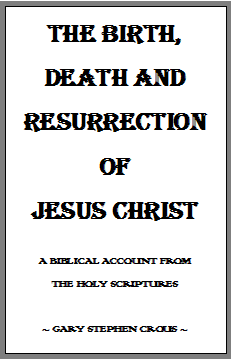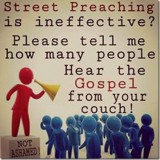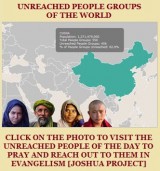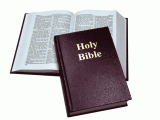How did Christianity and the Gospel of Jesus Christ arrive in South Africa? This blog post will look at the South African history of the colonisation of the southern African continent by the Dutch when Jan van Riebeeck landed at the Cape of Good Hope (Kaap de Goede Hoop) on 6th April 1652 to establish a refreshment post there.
Bio: Jan van Riebeeck, in full Jan Anthoniszoon van Riebeeck : born April 21, 1619 in Culemborg, Netherlands — died January 18, 1677 in Batavia, Dutch East Indies [now Jakarta, Indonesia].
 Landing at the Cape 1
Landing at the Cape 1
Whilst many African nations might speak out against colonisation, it was imperative that the ‘modern’ world explorers ventured to other lands to bring civilization to vast tracts of scarcely populated land inhabited by ‘heathens’. Many will be offended by this statement, but what must be realised that whilst advancements had been made with discoveries in Europe, most of the unchartered world still remained uncivilised in the way that life was lived.
Sir Francis Drake, when he rounded the Cape in 1580 in the Golden Hind wrote: “This Cape is the most stately thing and the fairest Cape we saw in the whole circumference of the earth.” Little did Drake know of what lay beyond the Cape. George Rex, who was believed to be the illegitimate son of King George III, made his home in Knysna and is said to have uttered these words: “This fair land is the gift of God.”
When in 1652 Jan van Riebeeck stood on the deck of the Dromedaris and surveyed the virgin land, almost untouched by human hand, he bowed his head in prayer to the Almighty and spoke these memorable words:
O Gracious and Most Merciful God and Heavenly Father, in Your Divine Majesty You have loved us and called us to guide the affairs of the Dutch East India Company in this place, and to this end we are gathered here together in Your Name. May the decisions we take further the best interests of the above-mentioned company, to maintain justice and, (if it is possible) among these wild and uncivilised people, may your true and perfect Christian teachings be established and spread, to the honour and praise of your Holy Name and the prosperity of our God Almighty, without whose merciful help we are powerless. Therefore we pray to You, O Most Merciful Father, and ask that you will stand by and support us with your Fatherly Wisdom and Understanding and preside over our gatherings; lift our hearts that all wrong passions, misunderstandings and bestial lusts be removed from us and cleanse our hearts from all human affectations; and so fix our minds that in our actions no other principles or motives are apparent other than the magnification and honour of your Most Holy Name so that we may best serve our lords and masters, without in any way acting for our own advantage or taking into account personal gain, to which end we will carry out our orders and so earn a worthy blessing. We pray and ask this in the Name of Your Beloved Son, Our Master and Saviour Jesus Christ, who taught us to pray… “Our Father who art in heaven, hallowed be Thy Name …”
The establishment of the colony in South Africa was very different from that of the colonising of Australia, with their ship loads of convicts and criminals, the fierce rebellion that broke out from time to time and the heavy drinking and abuses of the “rum corp”. Britain, on one occasion did send a ship load of convicts to the Cape, but the colonists stood together as one man and refused to let the ship land on South African soil and it was sent on to Australia.
The spirit that fired the early Dutch sailors of the 17th century was a religious zeal that took root in South Africa and has never quite departed. It was a staunch Calvinistic religion with the mighty slogan: “Honour solely to the Eternal Almighty Sovereign of Heaven and Earth”. In every home the Staten Bijbel, the Nederlands official Bible, held an important position and was read by the head of the household, and family prayers were held daily. In later years the church in Holland became more liberal so the Dutch Reformed Churches in South Africa turned to Scotland for the recruitment of their dominees [ministers].
Historic Cape Town Church buildings 2
Groote Kerk or “Great Church” is the mother church of the Dutch Reformed Church in South Africa and the oldest existing church in southern Africa, being the first Christian place of worship to be erected in the Cape, following the arrival of Jan van Riebeeck in 1652.
The church has endured much, and nearly 80 years after the cornerstone was first placed restoration work to the church became necessary. By the end of August 1835, the church had to be vacated, and its services were transferred to the Lutheran Church in Strand Street. Eventually the entire building, with the exception of its steeple and its vestry, was demolished and replaced by a new structure designed and the new building, a peculiar combination of Greek and Gothic styles, was inaugurated on 31 January 1841.
The Evangelical Lutheran Church, Strand Street, Cape Town was built in the early 1780s after non-Calvinist Protestants were finally given permission to worship on 23 October 1779. For more than a century, the Dutch East India Company had banned any religious practice besides the Dutch Reformed Church and in 1774, Martin Melck sponsored a warehouse in Strand Street to prove that the congregation had the necessary means to finance a preacher and build a church of their own.
It took years of petitioning from the mainly German Lutheran population in the colony before the first sermon was preached on 10 December 1780 by Minister Andreas Lutgerus Kolver. Services are still offered every Sunday from the ornately carved pulpit making it one of the oldest operating churches in Cape Town.
South Africa in Context 3
A Historical Sketch
For the Dutch, South Africa is not an exotic, distant country. Its strong ties with the Netherlands are well grounded. The first white settlement on the southern point of Africa is the only region of Africa where European families settled during the 17th century to establish a new society and where the Negro people arrived after the European settlers.
Originally, humanly speaking, there was no intention to establish a nation. In the 17th century many Dutch people migrated to five continents, but nowhere else had a state developed with such a Dutch stamp on it. No wonder many Dutch people have a great interest in South Africa. How many of the older generation of Dutch immigrants still remember the Christian author, L. Penning’s books about the Boer War?
Penning wrote with passion and vivid imagination about the Boers, who fought the British with great courage. He described the battlefields and the life and adventures of the Boers as if he had been in their midst. But Penning didn’t see South Africa until 1923, when he was seventy years old. His grateful publishers had given him the trip. Upon his return to Holland, he wrote, "My wish has been fulfilled. I have seen the battlefields, talked with the Afrikaners, slept in their tents, and was welcomed on their farms." He also commented, "The Whites and the Blacks live next to each other. Much wisdom will be needed to reconcile the greatest of all disparities in a Christian spirit."
To gain some understanding of South Africa we should consider its specific historic development and its geography. Climate and geographical location profoundly influence any community. South Africa has been described as a country of "haunting beauty." But the first settlers despaired of South Africa. The land was poor. Vast tracts of the interior consisted of shrub and semi-desert. There were no navigable rivers, and travellers overland had to negotiate formidable mountain barriers.
Today, South Africa is the most advanced nation in Africa. But many have come to associate it with violence, injustice, sanctions, the Reformed Church, Mandela, and Archbishop Tutu. But the more one reads about South Africa, the quicker the reader will discover the complexities of its problems. In 1948, the British author H. V. Morton, after a lengthy stay and extensive travel, wrote in his well researched documentary In Search of South Africa, "I had been in the country too long to be able to solve its problems and not long enough to be able to express an opinion about them." These were wise words.
Regrettably many have not taken them to heart, judging by the quick solutions offered to solve all the problems South Africa faces.
The Cape Settlement
When Holland was at the peak of her Golden Age, and trade with the Far East was booming, the Dutch East India Company decided to open up a halfway house between Europe and the East. The voyage to the East Indies was long and fraught with danger. Many sailors succumbed to illnesses caused by poor quality of food and water. The Company chose Jan Van Riebeeck (1618-1619) to command a small fleet of three ships to establish an outpost on the southern tip of Africa, the Cape, which seemed an ideal depot for resupplying ships with fresh provisions. Van Riebeeck was not only accompanied by a small force of soldiers and Company employees, but also by his wife, a lady of Huguenot ancestry, Maria de la Quellerie, and their baby.
Van Riebeeck was an enterprising, resolute and God-fearing man. Immediately after his arrival, he knelt in prayer and asked the Lord for wisdom and insight, for the spread of the Gospel and blessing upon the new enterprise. One of his first actions was the construction of a Fort and the laying out of a twenty-six-acre vegetable garden. The Company also ordered him to establish a store house, granary and a hospital. He was also expected to buy what meat he could from the local herders – the Hottentots, who called themselves Khoikhoi. He gave strict orders to his party to treat the native people fairly and establish good relationships with them. Since the population of the Cape was sparse and unable to furnish sufficient supplies for passing vessels, they felt the need for more immigrants. Therefore, in spite of the original intention of the Company, additional immigrants were invited to the Cape colony.
Under the iron rule of the Company, there was no freedom "either as to private life, political life or religious life." Dutch was the language spoken in worship, commerce, and education. The Company didn’t neglect the spiritual needs of their employees. They provided ministers of religion who were of the Reformed faith. Some of these ministers also attempted to evangelize the indigenous Khoikhoi people, which resulted in the baptism of a few Khoikoi before the end of the seventeenth century.
The Dutch were joined by German settlers and, later, by French Huguenots fleeing the persecution during the reign of Lois XIV. As time went by, more Dutch immigrants arrived, and a civil government was provided for the Cape. In 1679 Simon van der Stel was appointed the first governor. Out of this Cape community, developed the Afrikaans speaking people and the family of Dutch Reformed churches.
Modern Afrikaans is a basic form of Dutch with a rich infusion of English, Javanese and African vocabularies. In 1925 Afrikaans became an official language. In 1933 the Afrikaans Bible was read in the churches. Afrikaans became a language of culture, and many writers, poets and scholars used it as their mother tongue. One modern Afrikaner boasted, "Afrikaans has naturalized into its idiom all the best selected thoughts and ideas of English, Dutch, and German literature and popularized them in simplified language." Today new Afrikaner words are developed continually to replace English technical and sports terms.
South Africa’s Population
When Van Riebeeck came to the Cape, there were no "teeming black men," called "the natives." The first people seen by the settlers were bushmen and Hottentots. The Bantu-speaking African "natives," now seen everywhere, were, like the Europeans – invaders.
While the white men were advancing from the West, the Bantu tribes were advancing from the east, and the two races did not meet each other until a century later. Due to the Cape’s small population, Van Riebeeck soon realized the need for more labourers to meet the demands of the Company’s halfway station. He believed that the only way to solve the labour shortage was to import slaves. By Dutch law, aboriginal populations were exempted from slavery, which meant that the Hottentots were free people. The first party of slaves came in 1658 when a vessel from Amsterdam intercepted a Portuguese slave ship and brought 170 persons to the Cape. Since they were mostly girls and small boys, they failed to provide immediate help. A school was arranged and the students received a Christian education. Some of the children accepted the Christian faith, and some girls became wives of Dutch colonists. During the 17th century, many children born to slave mothers had white fathers.
The Company required that they be baptized and freed at a certain age. Slaves were imported from Angola and Guinea, and afterwards from Madagascar. They were also imported from the Dutch possessions in the Far East – principally Java as well as from Sri Lanka and the Malay Peninsula. These slaves worked in homes, in artisan workshops and in the fields. This use of slaves in the colony became a source of grievances in later years. In 1834, when South Africa was a British colony, slavery was officially abolished "in all lands subject to the British crown." The various racial groupings intermingled. Today’s South African coloured people are descendants of intermarriage between the original Hottentots and Bushmen, white settlers and slaves. More than 90 per cent of coloured are Christian and more than 80 per cent speak Afrikaans as their home language.
South Africa’s Indians are descendants of labourers who came in 1860 from India on ten-year contracts to cultivate the sugar, tea, and other crops in Natal. Until 1911, they continued to come to the country. When their contract period ended, many were allowed to stay on. These labourers belonged to the lowest caste, the pariahs. They proved to be a cheap work force. The Indian immigrants showed great commercial acumen and resourcefulness and, within a generation or two, most of them left the sugar fields. Eventually, they became market gardeners, hawkers, and domestic servants. Most were Tamil and Gujarati-speaking Hindus from the southern part of India, but there was also an influential Muslim community. Many Indians became successful traders and entrepreneurs. Some also practiced as doctors and lawyers. The most famous of these was Mahatma Gandhi, whose formative years were spent in South Africa as a young lawyer campaigning for greater rights for members of the Indian community.
South Africa’s Black community is complex. There are Blacks of different tribes such as the Zulus and Xhosas. Today, there are at least nine major black tribes. These different tribes have their own tribal loyalties and centuries-old conflicts. In the mid-20th century, Black immigrants streamed to South Africa. They felt the pull of her immense and prosperous economy. Ordinary Africans voted with their feet for the jobs the South African economy provided. But their migration to South Africa created horrible moral and social problems.
Johan D. Tangelder
September 2003
— ooo —
We will end off with the National Anthem of South Africa that lasted until 1994.
Die Stem / The Call of South Africa
Die Stem (YouTube)
Words: C.J. Langenhoven, Melody: Rev. M.L. de Villiers
Uit die blou van onse hemel, uit die diepte van ons see,
Oor ons ewige gebergtes waar die kranse antwoord gee.
Deur ons ver-verlate vlaktes met die kreun van ossewa –
Ruis die stem van ons geliefde, van ons land Suid-Afrika.
Ons sal antwoord op jou roepstem, ons sal offer wat jy vra:
Ons sal lewe, ons sal sterwe – ons vir jou, Suid-Afrika.
In die merg van ons gebeente, in ons hart en siel en gees,
In ons roem op ons verlede, in ons hoop of wat sal wees,
In ons wil en werk en wandel, van ons wieg tot aan ons graf –
Deel geen ander land ons liefde, trek geen ander trou ons af.
Vaderland! ons sal die adel van jou naam met ere dra:
Waar en trou as Afrikaners – kinders van Suid-Afrika.
In die songloed van ons somer, in ons winternag se kou,
In die lente van ons liefde, in die lanfer van ons rou,
By die klink van huweliksklokkies, by die kluitklap op die kis –
Streel jou stem ons nooit verniet nie, weet jy waar jou kinders is.
Op jou roep sê ons nooit nee nie, sê ons altyd, altyd ja:
Om te lewe, om te sterwe – ja, ons kom Suid-Afrika.
Op U Almag vas vertrouend het ons vadere gebou:
Skenk ook ons die krag, o Here! om te handhaaf en te hou –
Dat die erwe van ons vad’re vir ons kinders erwe bly:
Knegte van die Allerhoogste, teen die hele wêreld vry.
Soos ons vadere vertrou het, leer ook ons vertrou, o Heer –
Met ons land en met ons nasie sal dit wel wees, God regeer.
The Call of South Africa
Ringing out from our blue heavens, from our deep seas breaking round;
Over everlasting mountains where the echoing crags resound;
From our plains where creaking wagons cut their trails into the earth –
Calls the spirit of our Country, of the land that gave us birth.
At thy call we shall not falter, firm and steadfast we shall stand,
At thy will to live or perish, O South Africa, dear land.
In our body and our spirit, in our inmost heart held fast;
in the promise of our future and the glory of our past;
In our will, our work, our striving, from the cradle to the grave –
There’s no land that shares our loving, and no bond that can enslave.
Thou hast borne us and we know thee. May our deeds to all proclaim
Our enduring love and service to thy honour and thy name.
In the golden warmth of summer, in the chill of winter’s air,
in the surging life of springtime, in the autumn of despair;
When the wedding bells are chiming or when those we love do depart;
Thou dost know us for thy children and dost take us to thy heart.
Loudly peals the answering chorus; We are thine, and we shall stand,
Be it life or death, to answer to thy call, beloved land.
In thy power, Almighty, trusting, did our fathers build of old;
Strengthen then, O Lord, their children to defend, to love, to hold –
That the heritage they gave us for our children yet may be;
Bondsmen only of the Highest and before the whole world free.
As our fathers trusted humbly, teach us, Lord, to trust Thee still;
Guard our land and guide our people in Thy way to do Thy will.
_______________
Bibliography
1. A Remnant.pdf
2. Historic Churches Cape Town Attractions History and Culture, by The Historian, dated March 15, 2012
3. Johan D. Tangelder, September 2003


Filed under: Christianity, Dutch, Evangelism, God, Jan van Riebeeck, Jesus Christ, Netherlands, South Africa | 4 Comments »
 We were also blessed with meeting many people today as we shared Jesus Christ with many tribes, tongues and nationalities. It was a day spent for the glory of God Almighty alone.
We were also blessed with meeting many people today as we shared Jesus Christ with many tribes, tongues and nationalities. It was a day spent for the glory of God Almighty alone.



















 Landing at the Cape 1
Landing at the Cape 1




 Joshua Project
Joshua Project The Biblical Basis of Missions
The Biblical Basis of Missions

![The Biblical Nativity (Birth) of our Lord Jesus Christ according to the Holy Scriptures in the Gospel of Luke 1 & 2 [see Purge the leaven … blog post] The Nativity of our Lord Jesus Christ ~ Luke 1 & 2 The Biblical Nativity (Birth) of our Lord Jesus Christ according to the Holy Scriptures in the Gospel of Luke 1 & 2 [see Purge the leaven … blog post]](https://luke923evangelism.files.wordpress.com/2012/12/birth-of-christ-e1374168223523.png)



